Are you facing the tough decision of terminating a service agreement due to non-performance? It can be a challenging situation, but crafting a clear and professional letter can help facilitate the process. In this article, we'll guide you through the essential elements to include in your termination letter, ensuring you maintain a respectful tone while addressing the issue at hand. Join us as we delve deeper into creating a precise and effective termination letter template that will serve your needs.

Clear Subject Line
Termination of Service Non-Performance Notification In response to ongoing service non-performance issues, XYZ Corporation is notifying ABC Services of the contract termination effective immediately. Despite multiple notifications regarding deficient service delivery, including missed deadlines and inadequate quality, no corrective actions were implemented. The service agreement, initiated on January 15, 2022, in New York City, necessitated adherence to established performance metrics, which have consistently been unmet. As outlined in Section 5 of the contract, the lack of compliance with agreed-upon standards warrants this termination. Future communications regarding final settlements will be directed to your accounts department by November 1, 2023.
Introduction and Purpose
Service non-performance termination can occur in various contexts, such as contracts between service providers and businesses. This process typically arises when a service provider, such as a contractor or vendor, fails to meet the agreed-upon standards or deadlines outlined in a service level agreement (SLA). Commonly encountered issues include incomplete tasks, delayed deliverables, or subpar quality of work that does not comply with contractual obligations. The purpose of initiating a service non-performance termination is to formally end the business relationship, ensuring that the aggrieved party can seek alternative solutions or providers. This step is crucial for minimizing potential losses and maintaining operational efficiency within the organization, especially in fast-paced environments such as technology, healthcare, or manufacturing sectors.
Detailed Account of Non-Performance
The termination of service agreements occurs frequently in business relationships when one party fails to meet obligations. A detailed account of non-performance can include specific instances of service failures, such as missed deadlines for deliverables on contracts, incomplete tasks, or substandard quality of work provided. For example, if a software development company, XYZ Tech Solutions, repeatedly failed to deliver software updates within the agreed upon timeframe of 30 days, this can clearly illustrate their non-compliance with the service level agreement. Additionally, documented complaints from clients, like whether the delivered updates caused significant disruptions in operations at places such as HealthCare Inc., can highlight the severity of issues. Financial losses incurred, such as a loss of $15,000 in revenue due to system downtime, provides tangible evidence of the impact of these failures. Communication logs, including emails and meeting notes, can also demonstrate the attempts made to rectify the situation. Together, these details substantiate the rationale behind termination and showcase the persistent deficiencies in service performance.
Contractual References
Service non-performance in contractual agreements often leads to termination clauses being invoked. Legal documents should precisely reference contractual obligations outlined in Section 4.2 of the agreement, relating to service level expectations. For instance, failure to meet the required service response time of 24 hours, as stipulated in the contract's Appendix B, can warrant termination. Additionally, repeated non-compliance with quality metrics specified in Exhibit A, indicating a 95% service uptime target, may also serve as grounds for termination. Parties entering into contractual obligations should clearly understand the importance of definitions, timelines, and performance indicators to avoid disputes or potential legal ramifications stemming from service deficiencies.
Legal and Financial Implications
In the realm of service contracts, non-performance can trigger significant legal and financial implications for both parties involved. In scenarios where a service provider fails to meet outlined obligations as specified in a contract, such as a software maintenance agreement or construction service contract, the affected party may have grounds for termination. Legal repercussions may involve breach of contract lawsuits, leading to potential monetary damages, estimated at thousands or even millions of dollars, depending on project scale. Financial implications also encompass possible recovery of costs incurred due to delays or substandard services, including lost revenue associated with operational disruptions. Entangled in this situation, stakeholders must navigate complex contract stipulations, state or federal regulations, and potential arbitration or litigation processes, which can further escalate overall expenses and strain business relationships.
Letter Template For Service Non-Performance Termination Samples
Letter template of service non-performance termination for contract breach
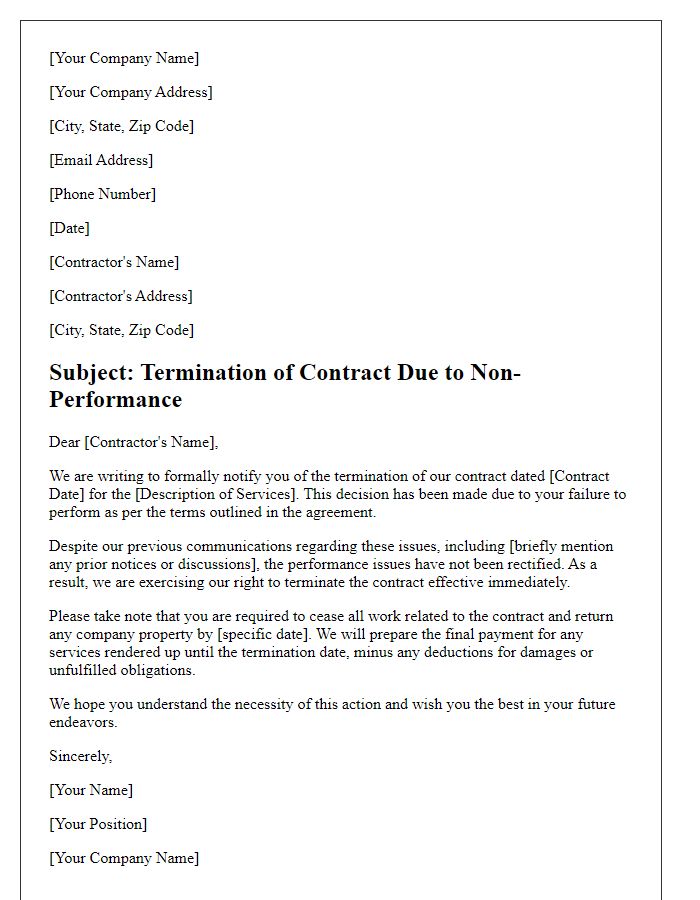
Letter template of service non-performance termination due to consistent delays
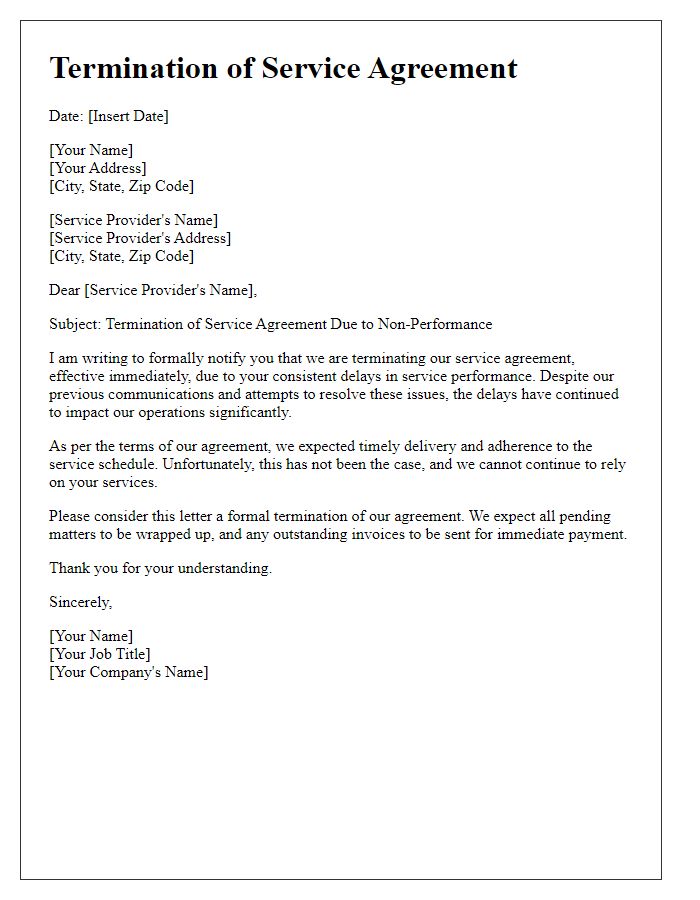
Letter template of service non-performance termination related to unmet quality standards
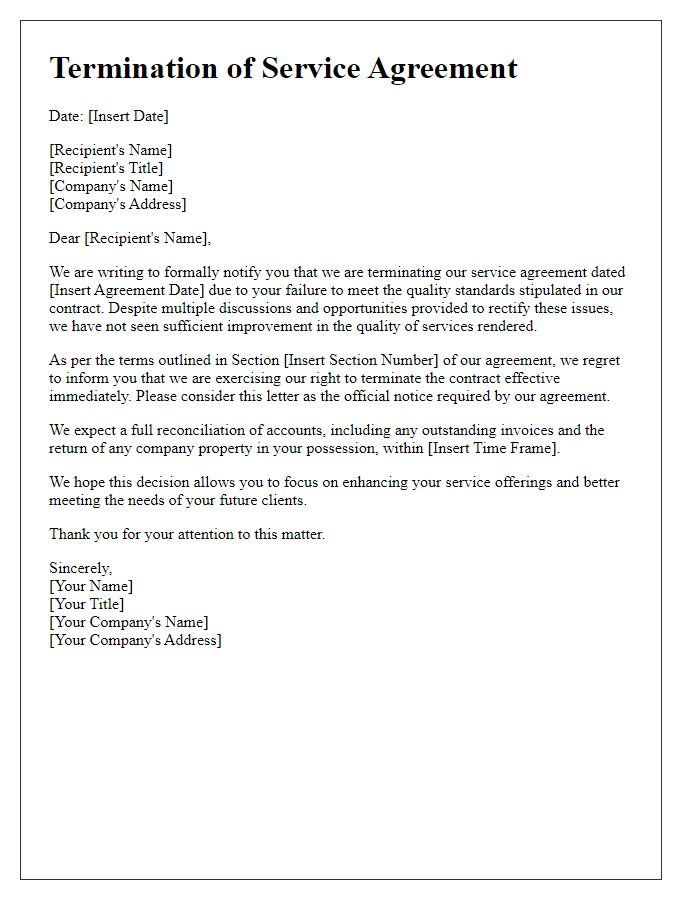
Letter template of service non-performance termination after notification of issues
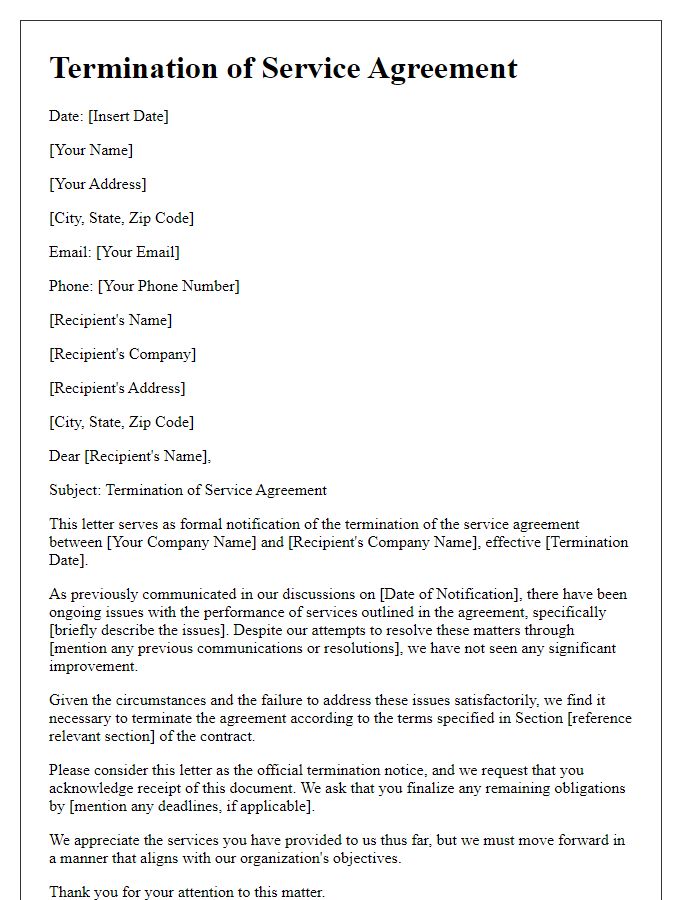
Letter template of service non-performance termination for failure to meet obligations
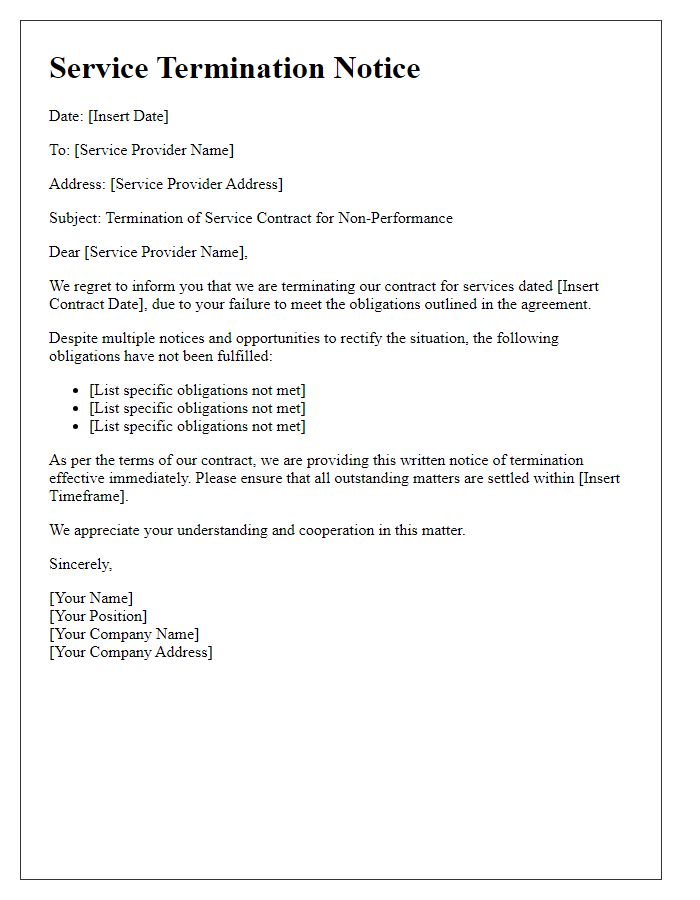
Letter template of service non-performance termination due to lack of communication
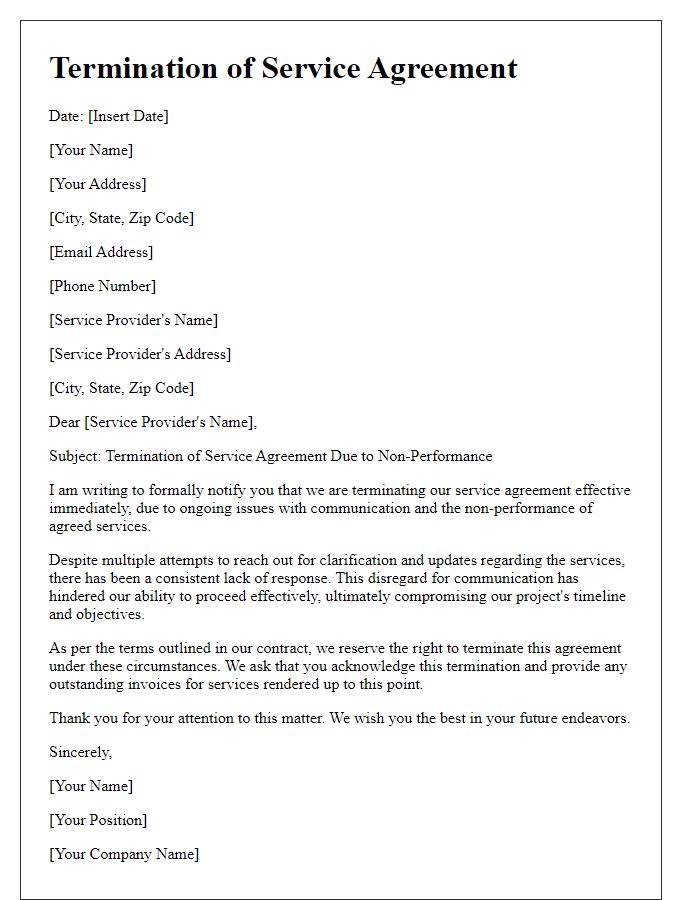
Letter template of service non-performance termination for unaddressed complaints
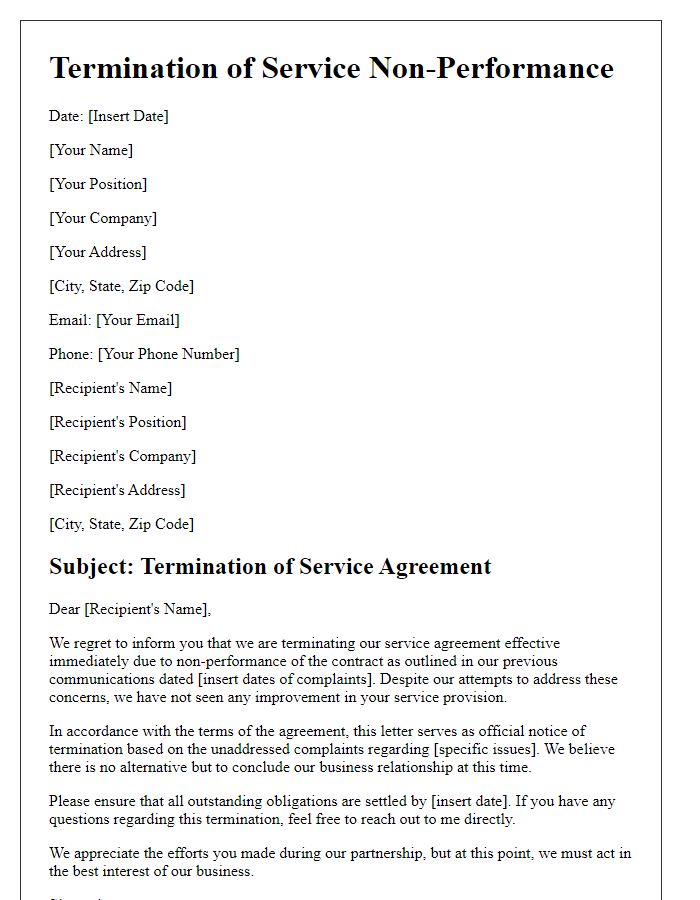
Letter template of service non-performance termination stemming from unsatisfactory results
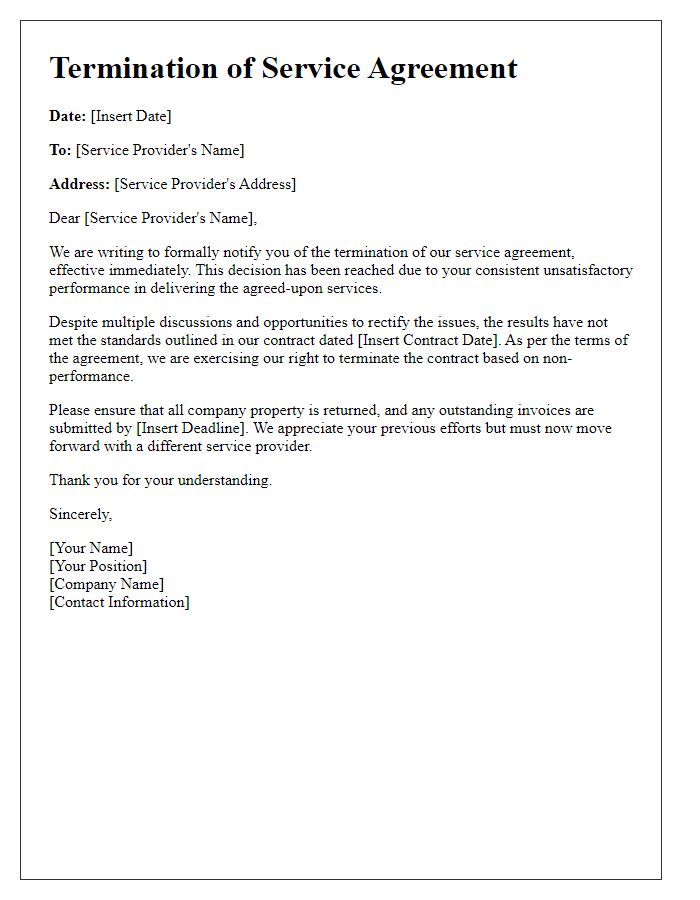
Letter template of service non-performance termination as a result of inadequate support
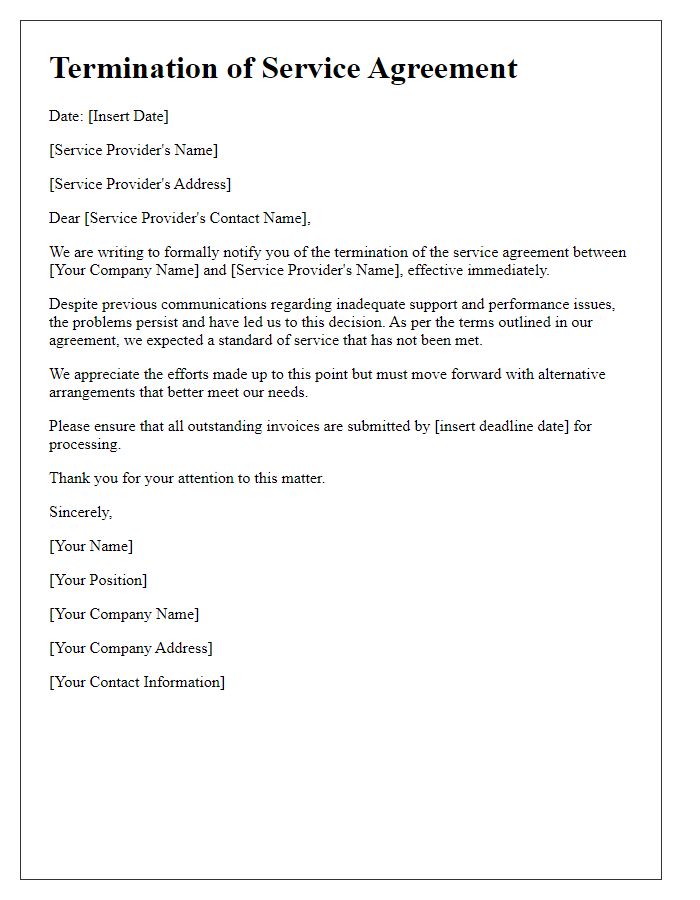

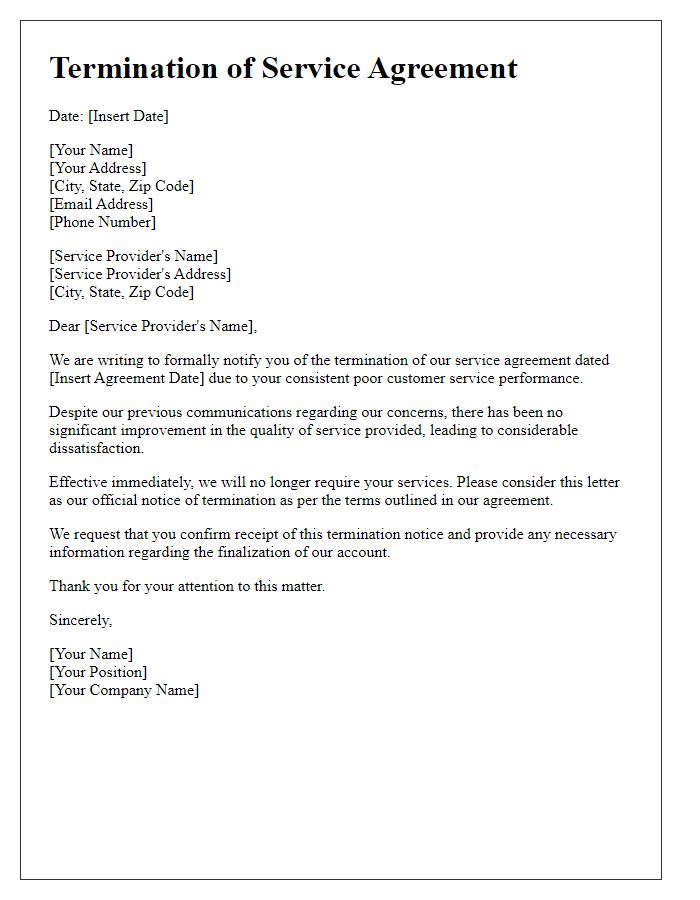


Comments